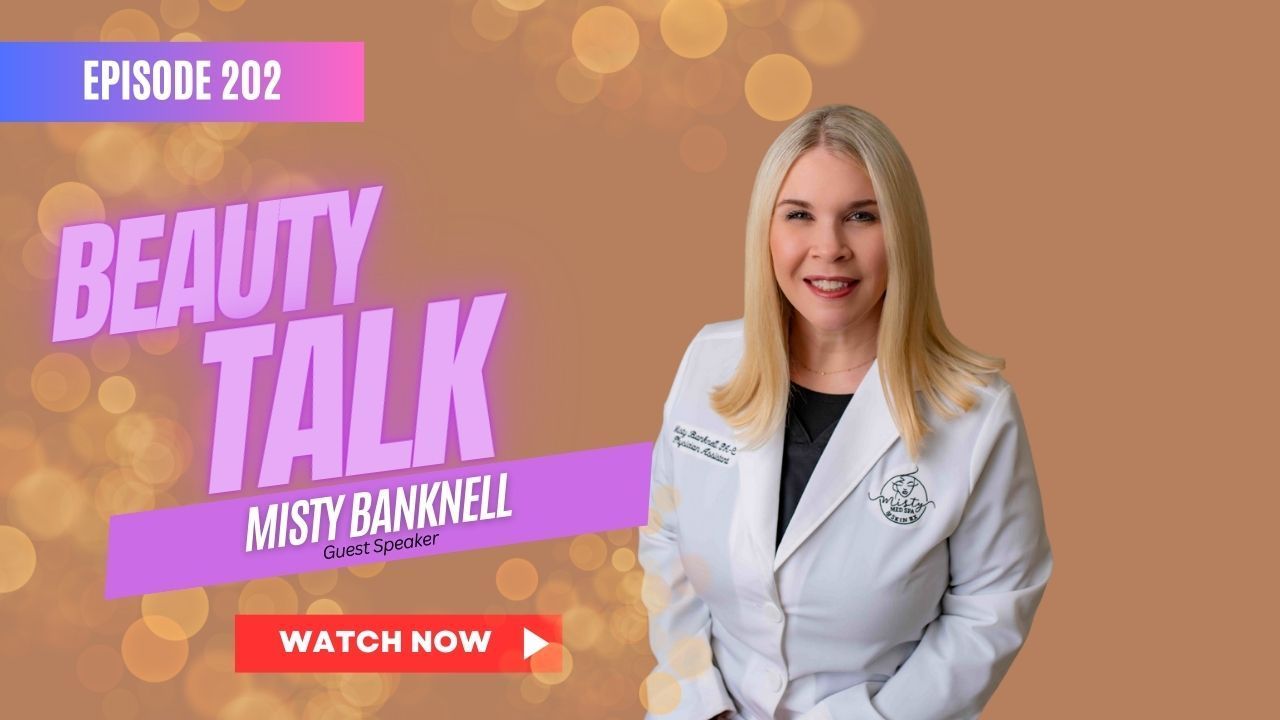Medical Digital Marketing Strategies that a Healthcare Professional Should Know
As the digital landscape continues to evolve, medical practices and providers must explore innovative digital marketing strategies in order to reach an ever-increasing online community of patients. Digital marketing can be an effective way to reach and engage more patients, increase outreach, and provide valuable services to their existing patient base. But how does one create and execute an effective digital marketing strategy for a medical practice? In this blog post, we’ll explore how you can utilize digital marketing strategies to reach more patients online. We’ll look at the various methods you can use to engage current and potential patients, increase visibility, and make your practice stand out from the competition. From leveraging search engine optimization (SEO), content marketing, social media, and email marketing to utilizing online reviews and "local optimization," we’ll uncover all the best practices for medical digital marketing.
Establish a digital presence for healthcare.
Establishing a digital presence is essential for the success of medical practices in today’s competitive healthcare market. With millions of people searching for health-related information on the internet, having an easy-to-find, informative website with engaging content can be a powerful resource for patients looking to make informed decisions about their health. Additionally, creating profiles on popular social media platforms such as Facebook, Instagram, and Twitter allows healthcare organizations to engage with potential clients, allow them to ask questions, share relevant information, and connect with other professionals or organizations online.
Many experts have noted that establishing an online presence is important not only for reaching more patients but also for building trust among current and potential patients. Having an online presence allows healthcare providers to build relationships through engagement, peer-to-peer networking opportunities, and access to professional groups that specialize in healthcare. This helps increase visibility among potential customers and builds trust by allowing them to see the expertise and qualifications of the practice's team members. It also ensures that existing patients can reach out if they have any questions or comments.
It is essential that healthcare companies stand out on the web by providing interesting content tailored to their target audience. Utilizing
search engine optimization
(SEO) techniques should be part of their overall digital marketing strategy as well. SEO helps ensure that websites show up higher in search engine results pages (SERPs), making it easier for potential patients to find the website. Similarly, strong user experience and web design must be implemented appropriately in order to provide visitors with an intuitive navigation system and access to the most essential services offered by the practice.
Overall, having a digital presence can help healthcare providers build trustworthiness and let current and potential patients know who they are as a practice at a glance. By utilizing SEO strategies and investing in high-quality web design, healthcare organizations can set themselves apart from the competition.
Building a Website for Your Healthcare Practice
When it comes to reaching patients online, building a website for your healthcare practice is a key step in your medical digital marketing strategy. As internet usage continues to increase, having an online presence enables practices to make the most of their digital channels and reach their target patient demographic. The website should be designed using up-to-date web design tools that provide an attractive and easy-to-navigate platform from which to interact with potential customers.
The pros of a website for a healthcare practice involve increasing brand awareness and enhancing patient engagement. A strong website can also help market information about services, incentives, and resources for patients, as well as educate them on conditions and treatments. Establishing and leveraging social media links on the website is also critical for driving traffic to the site.
On the other hand, having an online presence could put your practice at risk if the proper steps are not taken to ensure data security. Data must be protected to guarantee that any personal or confidential information remains private between a patient and the provider. Additionally, constantly maintaining a website can be costly and time-consuming when factoring in necessary website updates and associated costs for hosting. Regardless of the potential risks or pitfalls associated with creating a website for your healthcare practice, it is essential for any medical digital marketing strategy.
Maximize reach through social media networks.
Social media networks are an essential component of a comprehensive digital marketing strategy for healthcare organizations. When utilized effectively, these networks provide an invaluable platform for healthcare organizations to maximize their reach and attract a larger number of potential patients.
Social media networks allow healthcare providers to expand their audience by targeting specific demographics and locations. Platforms such as Facebook, Twitter, and Instagram also enable medical organizations to generate targeted campaigns based on user data that can be used to create customized messaging that resonates more effectively with prospective patients. Additionally, social media networks allow healthcare providers to include images, videos, and other forms of visual storytelling in order to promote their services in a visually dynamic way.
On the other hand, there are potential drawbacks associated with leveraging social media networks to market healthcare organizations. For instance, healthcare providers need to be aware that many users of these platforms are searching for shared experiences and advice from other patients, so it’s important for them not to overly market themselves on such platforms or use blanket messages that don’t speak directly to a particular audience or patient condition. Other potential pitfalls include the lack of transparency from some social media companies about who owns and controls user data, privacy issues surrounding sharing patient stories, or potential compliance considerations related to promoting medical products through these platforms.
Ultimately, the key is finding the right balance when it comes to utilizing social media networks as part of a larger digital marketing strategy for healthcare organizations. By understanding how to appropriately use these networks while still adhering to increasingly stringent regulations covering medical outcomes and privacy policies, medical professionals can ensure they get maximum reach without sacrificing prudent delivery of service standards.
Boost visibility through targeted advertising.
Targeted advertising has been an effective method of boosting visibility and engaging with potential consumers. It allows marketers to promote their services in a much more specific way, thereby reaching a relevant segment of the population. Targeted advertising is incredibly powerful because it allows marketers to narrow down their audience based on demographics, interests, location, etc.
There is a debate about the effectiveness of targeted advertising. On one side of this debate are those who argue that targeted advertising makes reaching out to potential customers much easier and faster. It also saves resources since marketers do not have to waste time and effort reaching out to irrelevant individuals or organizations. In addition, targeted advertising can enable businesses to reach out to customers who are already interested in their product or service, making them more likely to convert.
On the other hand, some have argued that targeted advertising can go too far and border on being intrusive or even unethical. As with any powerful tool, there must be attention paid to how it is used and where its limits lie. For example, using targeted ads that engage in predatory behavior by targeting vulnerable populations may bring an organization into ethical danger if used without restraint and care.
In conclusion, targeted advertising has become increasingly popular as a means for increasing visibility and engaging with potential customers online. When used properly and responsibly, targeted ads can be very effective in helping reach the right people quickly and efficiently. However, the risks of going too far should not be discounted and must be taken into account when deciding what strategies should be used.
With that in mind, it is important to turn our attention now to how increasing visibility via search engine optimization can help further boost your medical digital marketing strategy.
Increasing visibility via search engine optimization
Search engine optimization (SEO) is a key tactic when it comes to driving organic web traffic and reaching potential patients online. SEO helps your medical practice’s website appear higher up in search engine results for relevant topics, providing your website with greater visibility within a highly competitive market.
When searching for any medical-related question that involves your area of expertise, an effective SEO campaign can help ensure potential patients find your website first. Through the careful implementation of keywords and relevant content, you can effectively increase your website’s visibility and more actively engage with your prospective patient base.
Another advantage of using SEO involves improving the overall trustworthiness of your website as well as the entire organization itself. Improved website visibility through optimized content helps to emphasize the value and quality of the services that you provide by reassuring prospective patients that your practice is trusted and established within their local community.
On the other hand, it is also important to consider that without a clear strategy in place, SEO campaigns can be more difficult and time-consuming than expected. From tracking relevant metrics and utilizing keyword research tools to determine the best keywords to target to regularly adding engaging content that engages potential patients, SEO requires consistent effort from experienced professionals if done correctly. Overall, increasing visibility via search engine optimization offers an extensive list of advantages for medical practices looking to reach their target audience through targeted organic traffic, but ultimately requires dedicated attention.
Creating quality website content
Creating quality website content is an extremely important step for any medical digital marketing strategy. Quality content encompasses many aspects, including accuracy, readability, user experience, and how well it reflects the values of the organization. Starting with an accurate representation of a practice’s services and contact information is essential and must be kept up-to-date. In addition, the text should be accessible to a variety of readers with different levels of health literacy and written in plain language. Along with website text, visuals such as images, infographics, and videos can be used to provide guidance in an easily digestible format for patients.
The user experience of a website is also important to consider when developing content. Navigation should be intuitive, allowing users to move quickly between pages and find what they are searching for without difficulty. Accessibility should also be taken into account; websites need to meet certain standards that make them equally accessible to all users, regardless of disability or physical or mental impairment.
Lastly, quality website content will reflect the values of an organization and attract potential patients who are interested in the services offered by practicing providers. This type of targeted messaging can also convey the trustworthiness of an organization or practice and encourage leads who may become future patients.
To ensure that these goals are met, medical practices should regularly review their website content by auditing it against each component discussed above. Doing so will ensure their message is being conveyed accurately and effectively given each intended participant’s level of health literacy, accessibility requirements, ease-of-use, appropriate aesthetics, and overall value proposition.
Having quality website content can greatly improve the success of a medical marketing strategy online by providing accurate information while engaging potential patients through clear communication and easy navigation techniques. With this foundation established, practices can now move on to generating interest through blog posts to attract even more attention from prospective patients.
Generating Interest Through Blog Posts
Blogging is one of the most effective strategies for medical digital marketing. In order to reach more patients online, healthcare providers should consider writing on topics related to their practice. This presents an opportunity to showcase their knowledge and generate interest among potential patients.
By creating content that is relevant to their field, healthcare providers can establish themselves as knowledgeable authorities in their respective areas of expertise. They can also build trust with online visitors by providing detailed information about complex medical issues. Additionally, doctors and other healthcare providers will benefit from the authority they develop when they link to reputable sources and write regularly.
Moreover, blog posts can help boost the visibility of a business’s website in search engine results pages (SERPs). Keywords that are used intelligently throughout a post can increase its visibility and draw patients to the practice’s website. By ensuring that posts are well-written, interesting, and informative, healthcare providers will be able to attract more visitors and potentially drive leads for their businesses.
However, blogging requires a great deal of commitment. Providers must be willing to devote time, resources, and effort into crafting blog posts that appeal to readers who may not be familiar with much of the terminology or concepts discussed in them. Furthermore, due to frequent changes in information related to patient care and treatments, it is essential for healthcare providers to stay up-to-date on all the latest developments.
In conclusion, blog posts offer a great way for medical providers to reach more patients online by showcasing their knowledge and establishing trust with users. When done correctly, blogging can help boost a practice’s visibility in the SERPs and provide valuable leads for their business.
Implementing successful campaigns
In order to make sure your medical digital marketing strategies are successful, it is important to understand the fundamentals of good campaign management and implementation. There are several elements that need to be taken into consideration when launching a digital marketing campaign, such as deciding on the target audience, creating and distributing content, choosing the right channels for promotion, and measuring the results.
When it comes to targeting potential patients online, it is important to define the characteristics of your ideal patient. Knowing who you are targeting will help you determine the best messaging, timing, and channels for your campaigns. It is also essential to have a well-defined and measurable goal in mind prior to launching any campaigns. This will help ensure that you are able to assess your success upon completion.
Creating content for your digital marketing initiatives can involve many different tactics. Blogging, social media posts, email campaigns, and interactive content like quizzes or polls can all play a role in helping you reach potential patients online. To ensure maximum engagement, content should always be tailored specifically for the target audience based on their interests and needs, and interactive content like quizzes or polls can all play a role in helping you reach potential patients online. To ensure maximum engagement, content should always be tailored specifically for the target audience based on their interests and needs. Additionally, branded images and videos can help create a consistent presence across various platforms.
Once content has been created, the next step is selecting appropriate channels through which it can be distributed. Again, knowing the target audience is integral here—different channels will engage different people in different ways. For example, video content tends to perform best on social media, while blog posts may be better suited for email campaigns. And depending on your situation and budget, paid advertisements can also be used in conjunction with organic strategies.
Finally, measuring the impact of one’s digital strategies is an essential part of successful campaign management and implementation. Determining how each campaign performs helps provide valuable insights that can be utilized for future initiatives; it's also a great way to track ROI (return on investment). Tools such as Google Analytics and similar services can help measure vital metrics like website visits and conversions over time, measuring engagement patterns and providing data from whichever channel was most effective throughout the process.
Measuring the Impact of Your Digital Strategies
The key to successful medical digital marketing is understanding the effectiveness of your strategies so that you can make necessary improvements and keep the success going. Measuring the impact of your digital marketing strategies is critical for gauging your overall campaign results and determining areas for optimization. There are several methods of measuring the impact of your campaigns, from tracking website metrics to monitoring engagement on social media platforms.
Website Metrics
Analyzing website-related activity through tools like Google Analytics offers clear insight into how people are interacting with your digital properties. Taking some time to review your analytics data can provide in-depth information about the type of content being visited the most, where website visitors are coming from, and how long they are staying on each page. This data can help refine and optimize current marketing efforts while helping determine what works and what doesn’t. Additionally, A/B testing specific webpages or campaigns can give valuable insight into which versions yield better results.
Social media engagement
Are users interacting with your posts? It’s important to monitor engagement rates on various social media platforms to ensure that content is resonating with followers and attracting new people who may not be familiar with your brand yet. Social media engagement data points include likes, comments, shares, views, link clicks, mentions, etc. All these metrics combined can offer great insight into which types of content work best for different audiences, as well as help put real numbers around ROI.
Paid ad performance
Metrics from paid ads are extremely useful when it comes to determining whether money spent yields the desired results regarding overall engagement and conversions. Being able to track conversions across channels enables a better understanding of which online or offline promotions had the best outcomes. This data helps shape future advertising campaigns by correlating cost-effectiveness with a better return on investment.
Overall, measuring the impact of your digital strategies is a must for any medical marketer looking to succeed in such a crowded space. By evaluating website metrics, tracking social media performance, and assessing paid ad performance, marketers can gain vital insights into which tactics have been working best and make necessary tweaks moving forward.
Contact EDNA Digital Marketing for digital marketing strategies.
Are you ready to take your medical practice to the next level with digital marketing? EDNA Digital Marketing can help. Our team of digital marketing experts has the knowledge and experience to create customized strategies that will help you attract new patients and grow your practice. We understand the unique challenges and opportunities in the medical industry, and we'll work with you every step of the way to ensure that your digital marketing strategy aligns with your business goals. Contact us today to learn more about our medical digital marketing services and take the first step towards growing your practice.










